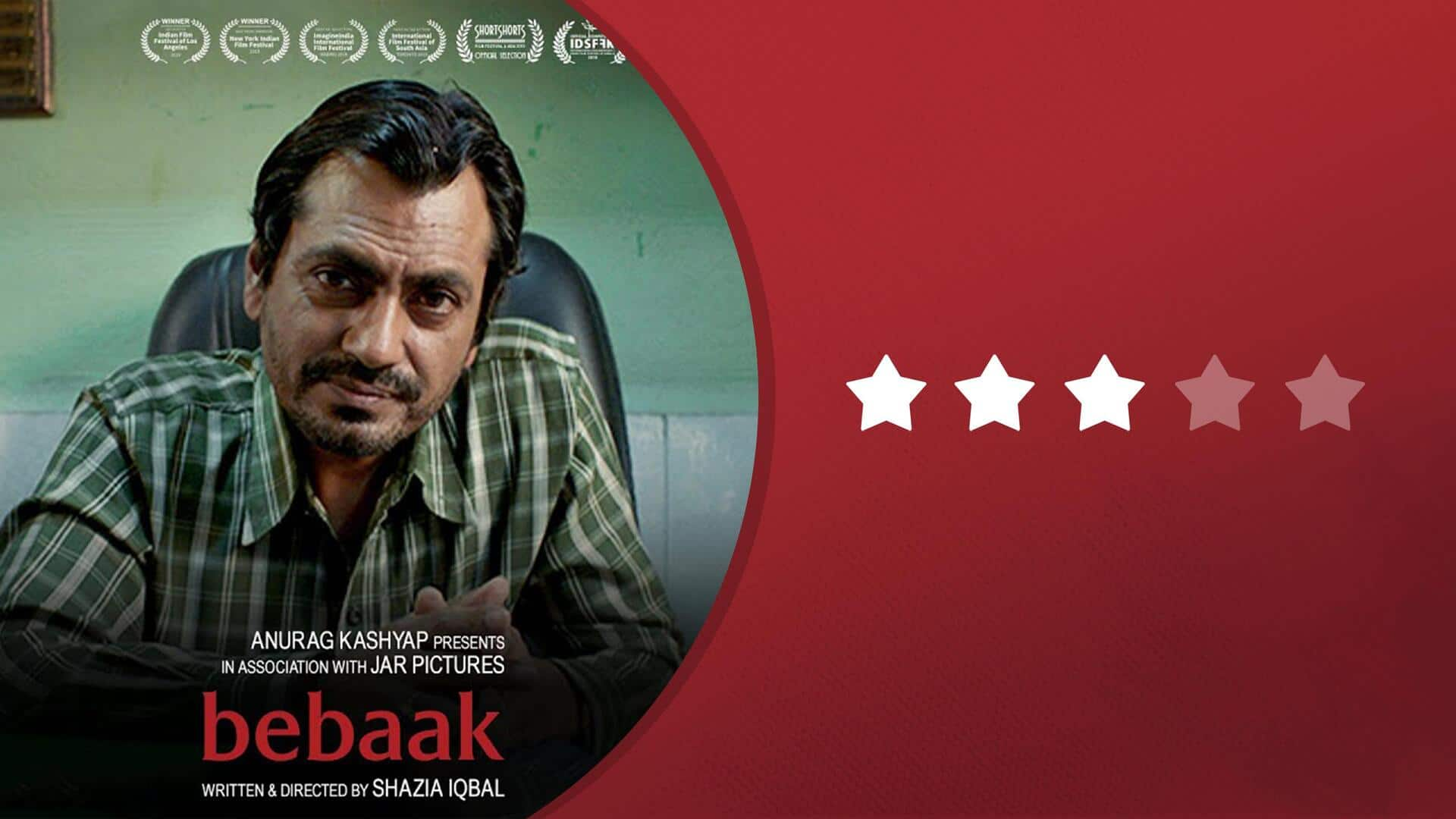
'Bebaak' on JioCinema review: Fiery feminist tale takes down patriarchy
What's the story
The short film Bebaak on JioCinema—directed by Shazia Iqbal and co-produced by Anurag Kashyap—is a fiery feminist tale. It aims to take down the dangerous blend of religious fanaticism and unbridled patriarchy. Starring Vipin Sharma, Sheeba Chaddha, Nawazuddin Siddiqui, and Sarah Hashmi, the 20-minute-long short centers on Fatin, an architecture student who finds herself at the crossroads when she encounters a religious establishment's secretary.
Plot
'Bebaak's plot: Story of struggle for quality education
Fatin (Hashmi) lives in a modest establishment with her parents, two sisters, and a brother. Her siblings are much younger, and it is implied she needs to step up and earn for the family. However, she requires money to complete her education, something the aforementioned secretary can lend her only if she accepts to toe the line and cover herself in a hijab.
#1
First shot allows us into Fatin's world
The first time we meet this family, we sense their lives, the conversations that possibly transpire in the background, and the struggles each family member has or will soon experience. Their living room is the kind of place where everyone has to get in line to use the dressing table; they don't live a hand-to-mouth existence but only have just enough to get by.
#2
She has been raised in liberal household
Fatin's parents' ideologies contrast with the life she witnesses outside her home. While they are relatively liberal and don't lecture their daughters on what to wear and who to speak to, her conservative surroundings demand Fatin to constantly keep her guard up. She wears salwar suit and never a hijab, so when asked to "cover herself up," she finds her freedom cruelly slipping away.
#3
Fatin loathes aforementioned secretary, misogynistic ideals
Siddiqui plays a traditionalist who strongly believes that a "naked head is similar to a naked body" and reckons that women, across all religions, must be controlled. A representation of unchecked patriarchy, he is everything Fatin detests about the world. It is this unnerving blend of religious authority and rampant misogyny that Bebaak tries to rip apart at the seams.
#4
She succumbs to his wishes, but only momentarily
Later on, it doesn't take much time for Fatin to realize that the "charity" by Siddiqui's religious establishment is her only recourse. So, she resentfully clads a hijab: transgression is sometimes required to take a backseat, too. During one striking moment, she vomits out the "rules of the hijab"—she doesn't blink, move, or betray any emotions; conforming to religious fanaticism has intrinsically killed her.
#5
What happens when she agrees with Siddiqui's character?
In one poignant scene close to the climax, Fatin meets a young girl (whose head is covered), someone who had earlier seen her in her salwar suit and had gotten inspired to be like her—free, English medium-educated, and unbothered by religious propagandists. However, after seeing her clad in a burqa, her heart aches, and her dreams evaporate: her hero is no longer the same.
#6
Shortcomings: 'Bebaak' could have been better in these areas
For all its merits, convincing performances, and a tight script, Bebaak could have been even better if it didn't lag in a few departments. For instance, Chaddha has a criminally curtailed screen time, it's almost as if she was added to the story later on. One also feels the lack of a good build-up; Bebaak is too eager to jump to the central narrative.
Verdict
We recommend checking it out on JioCinema
Bebaak is another reminder of how religion, society, and patriarchy together pull women down at each possible opportunity. While women's resilience sometimes begins to wear thin, that's not to say that there's no glimmer of hope. Like the titular protagonists of Wadjda and Farha, Fatin, too, fights back. If Bebaak were a full-length feature, I'd have loved it even more. Verdict: 3/5 stars.